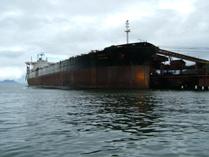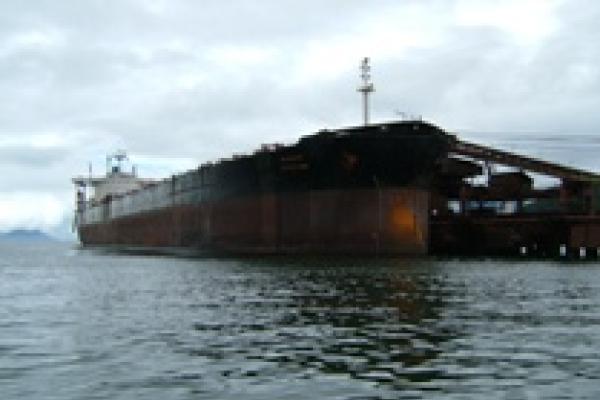
Steamship Mutual
Published: May 01, 2008

The recent decision in the US Court of Appeals for the Fifth Circuit concerning the case of Norwegian Bulk Transport v International Marine Terminals demonstrates the difficulties a charterer can face when pursuing recourse actions against third parties for losses it has incurred under a charterparty.
In an article which considers the sustainability of claims for economical damages in the absence of a contract, the US Law position is reviewed and the reasoning behind such seminal cases as Robins Dry Dock & Repair Co examined.
In both Robins Dry Dock and Norwegian Bulk Transport, the court ruled that in the absence of a contract, claims for economic damages are not recoverable in maritime law by a charterer with no ownership interest in the vessel and where the third party being sued was not involved in the contract out of which the economic damages arose. The article looks at the limited instances when a charterer may recover for economic loss from third parties, under both US and UK law, and the pre-emptive steps charterers can take to protect their position.
Background Facts
Bulkhandling owners of the M/V UNERWALDEN, time chartered the vessel to Norweigan Bulk Transport (NBT), who in turn entered into an agreement with voyage charterer Eramet. Eramet was to use the vessel to fulfil its obligations under a cargo transfer agreement with a shipper, International Marine Terminals Partnership (IMT). In accordance with the head time charter agreement the vessel had to be returned to Bulkhandling by NBT by a specific date and time.
IMT’s delay in completing its operations resulted in NBT having to pay US$ 20,000 in additional hire to Bulkhandling. Remarkably, given the amount in dispute, NBT brought an action against IMT claiming its losses under the head time charter. The US Court of Appeals for the Fifth Circuit ruled that if an action is brought in tort by a party that is claiming economic loss and that party is not 1. the owner of the vessel in question and 2. is suing a party that was not involved in the initial contract out of which the economic damages arose in the first place, then that party would not be permitted to recover for economic losses. As a result NBT’s claim failed.
How and Why did the Court reach it’s decision?
In reaching it’s decision the court applied the well known principle that was established in the case of Robins Dry Dock. IMT argued that under this principle maritime law negates NBT’s claim for economic damages. This is because NBT neither owns the vessel nor does it have a contract with IMT with respect to the vessel. The court agreed with this, holding that the only exception to the Robins Dry Dock principle applies in the context of collisions. Here they referred to the case of Amoco Transport v SS MASON LYKES in which it was found that, because the vessel owners and the cargo owners were engaged in the common venture of sharing the risks of voyage, the cargo owners could recover for economic losses from the non-carrying ship even though they were not owners of the damaged vessel.
What exactly is the Robins Dry Dock principle?
In Robins Dry Dock, a time charterer tried to recover for economic losses resulting from their inability to employ the vessel they chartered for a period of days after it was negligently damaged by the defendant (a dry docking company).
The Supreme Court denied the claim stating that the time charterer did not own the vessel and therefore suffered no physical damage to its own property. In essence the court was saying:
1. The charterer was not an intended beneficiary of the dry docking contract between the vessel owners and the dry dock; and
2. no tort arose simply because the charterer had a contract with the vessel owners,
therefore, the charterers had no cause of action.
NBT v IMT and Robins Dry Dock – The Link
It is unsurprising, given the similarities between the facts in the current case of NBT v IMT and those of Robins Dry Dock, that the appellate court would apply the Robins Dry Dock principle when reaching a decision:
- The plaintiff in both cases did not have any ownership rights over the vessel and yet it still tried to seek damages for loss of use of the vessel it chartered.
- The dry dock company in Robins Dry Dock was unaware of the existence of the charter party and similarly IMT was also unaware of any agreements in existence with other parties besides the transfer agreement it had with Eramet.
The court further noted that NBT was “even more removed from the defendant than the plaintiff in Robins Dry Dock due to the presence of the intervening charterer, Eramet”.
In addition, the transfer agreement between IMT and Eramet, accorded IMT 3.31 lay days in which to complete it’s off-loading operations and any necessary repairs should any damage occur. In actual fact, even though IMT caused some damage to the vessel and hence carried out repairs, they still managed to return the vessel with 0.2 lay days to spare. Therefore IMT asserted that this pertinent point, that IMT was not in fact in breach of its contractual obligations, should further preclude NBT’s claim.
Comparison with English Law
The position under English law is similar. If a time charterer has no proprietary interest in the chartered ship they cannot recover damages for economic loss when a third party damages that ship. This is because it is thought a time charter is neither a lease nor a contract for the hire of the ship. On the contrary, a time charter is more a contract for the provision of services, services which the owners provide through their officers, crew and ship1. In The Mineral Transporter, as in Robins Dry Dock, the Privy Council found that to allow such claims would open floodgates resulting in all manner of subsidiary claims being brought. In particular, the Privy Council drew attention to the fact that in older cases it was only the owner of the property that was permitted to claim for loss of profits if his property got damaged and not those that merely had a contractual right to use the property.
Conclusion
The judgement in this case clearly affirms the principle established in Robins Dry Dock. Furthermore, in NBT v IMT the court found that when NBT negotiated its voyage charter agreement with the intervening charterer Eramet, it had the opportunity to protect itself against losses of this very nature but failed to do so. Perhaps therein lays the answer to the problem NBT faced. The need to claim in tort would have been better avoided through the inclusion of a contractual provision that ensuring that the redelivery obligations under the time and voyage charters were synchronous.
1. Wilford, Coghlin and Kimball, Time Charters, Fifth Edition, section 35.8, page 588.


